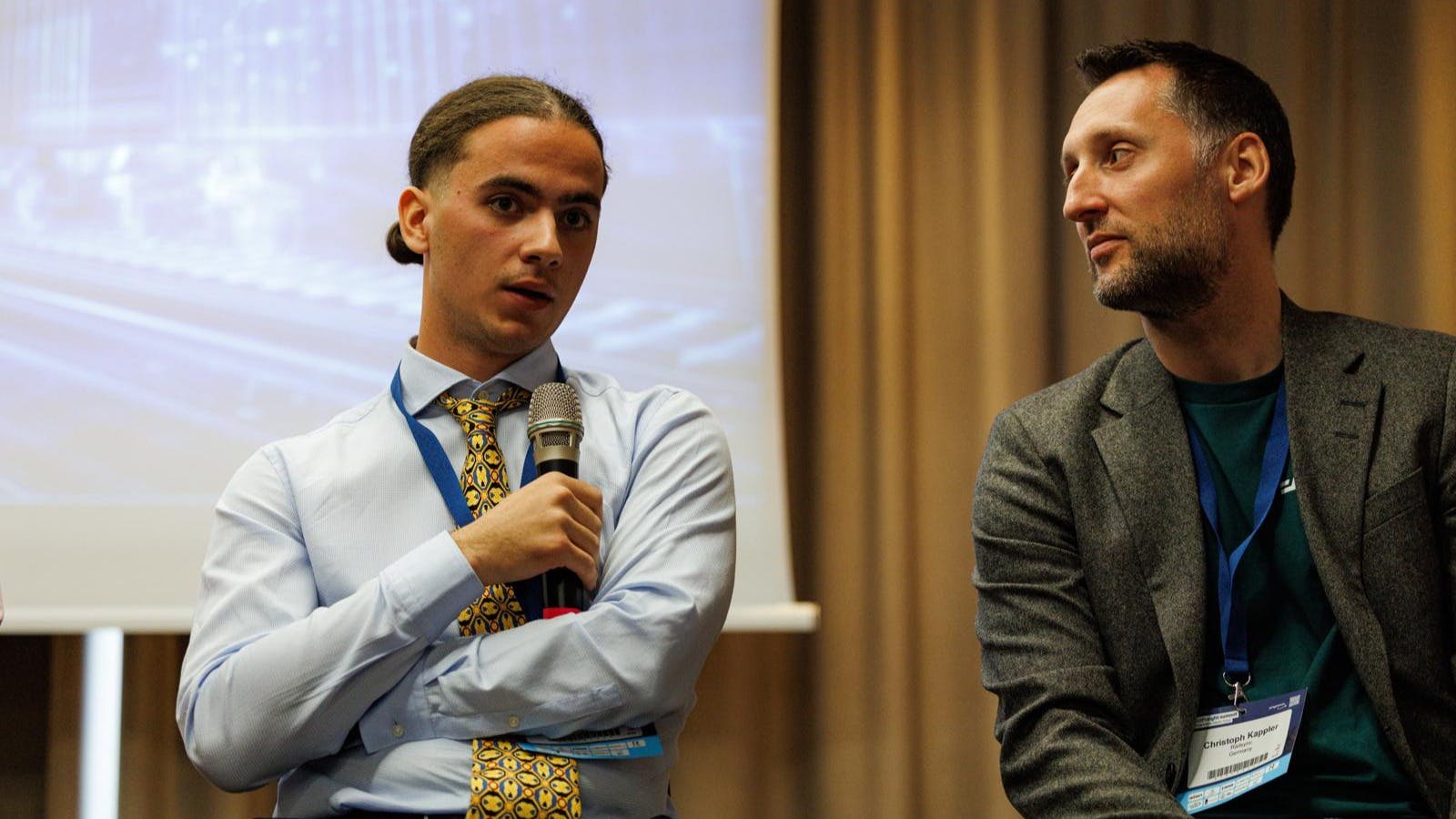Cameras are everywhere, in our shops, warehouses, train stations, and even our homes. They record millions of hours of footage every day. But most of them just record and watch us passively. They don’t understand what they’re seeing.
Teodor Calin wants to change that. The Romanian engineer and researcher is the co-founder of Vulture Labs, a start-up that’s turning ordinary cameras into intelligent systems that can interpret and act on what they observe.
“Right now, cameras are reactive,” Calin says. “They show you what happened after the fact. We’re making them proactive, able to understand and respond in real time.”
Here, Teo talks us through the premise for his new company, and what he says to the people who say it’s impossible.
Meet Vulture Labs: The Company Changing Cameras
Vulture Labs builds software that can interpret video footage and provide insights the moment something happens. Instead of relying on people to review hours of recordings, its technology analyses live feeds, detects meaningful events, and notifies users instantly.
The concept is straightforward: take the cameras that already exist and make them smarter. “Most businesses already have camera networks,” Calin explains. “They don’t need new hardware. They need awareness. We bring intelligence to what’s already there.”
The software uses computer vision, the field of AI that enables machines to “see”, to identify actions, patterns, and anomalies. It can distinguish between ordinary and unusual movement, recognise interactions, and understand context. In a warehouse, for instance, it might notice if a worker has entered a restricted area or if equipment is left idle. In a shop, it can spot when customers are waiting too long or when staff are disengaged.
When it detects something worth attention, it sends an alert, a message, or a report. “The system doesn’t just record,” Calin says. “It interprets. That’s the key difference.”
The Research Paper at the Core of the Business
The foundation of Vulture Labs’ work lies in academic research. Calin co-authored a paper titled “THIRDEYE: Cue-Aware Monocular Depth Estimation via Brain-Inspired Multi-Stage Fusion” — a study that proposes a way to extract depth and 3D spatial data from flat, two-dimensional images.
The problem the research addresses has long challenged computer vision experts. Traditional depth estimation requires stereo cameras, LiDAR sensors, or specialised hardware. Calin’s work shows that it can be achieved with ordinary cameras through clever use of context cues and AI models inspired by how the human brain processes visual information.
“We realised you could understand a scene, not just what’s in it, but how far things are, how they relate, without extra sensors,” he says. “That means any camera can become spatially aware.”
This approach is what makes Vulture Labs’ product so scalable. It doesn’t rely on new installations or expensive equipment. The intelligence lives in the software, not the device.
How Vulture Labs is Seeing Things in the Real World
Vulture Labs is already working with clients across several industries. In retail, its technology helps managers understand customer engagement and staff activity. In manufacturing and warehousing, it provides live monitoring of workflow, safety, and productivity. In logistics and transport, it improves visibility across complex operations.
“Think of it as giving your business a set of intelligent eyes,” Calin says. “You get real-time awareness of what’s happening in your environment. That’s what we call spatial intelligence.”
Because it uses existing infrastructure, the solution is cost-effective and fast to deploy. Companies can unlock new insights from the cameras they already own, instead of replacing entire systems.
The software also integrates with messaging platforms, enabling what Calin calls “on-demand context.” Users can ask questions like‘Has anyone entered this zone today?’ and receive visual answers powered by the system’s AI.
But Is All This Actually Possible?
Vulture Labs’ team describes itself as research-driven and resilient. Calin admits that the company has faced “tens of technical blockers,” but says overcoming them is part of its DNA.
“Most people say, ‘That’s impossible.’ We hear that almost every week,” he laughs. “But that’s exactly where we thrive. When you’re solving problems that haven’t been solved before, uncertainty becomes normal.”
That attitude has attracted attention beyond the tech sector. Calin was recently invited to speak at the Rail Freight Summit 2025, where he discussed how AI-based perception systems could make freight terminals safer and more efficient.
“It’s exciting to see traditional industries becoming more open to AI,” he says. “They’re realizing AI is all about giving them better awareness and decision-making tools.”
Our Future Looks Like A More Aware World
Despite the naysayers, Vulture Labs continues to grow across Europe, with clients ranging from small retailers to large logistics operators. The company’s ambition is to bring spatial intelligence to every connected camera, in every industry.
For Calin, the goal is simple: make technology more observant, more contextual, and more useful. “Awareness is the next step in AI,” he says. “Machines can already recognise objects and people. Now they need to understand why something matters.”
He pauses, then adds, “If we can teach cameras to be proactive, we’re one step closer to teaching the world to see itself better.”
---
This article is published under HackerNoon’s Business Blogging program.


